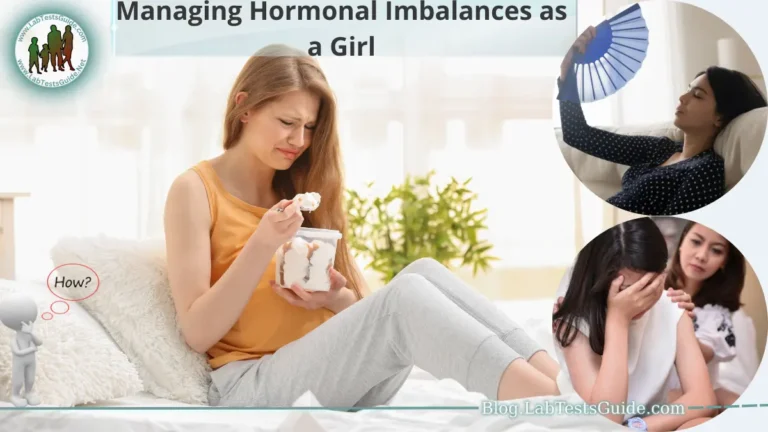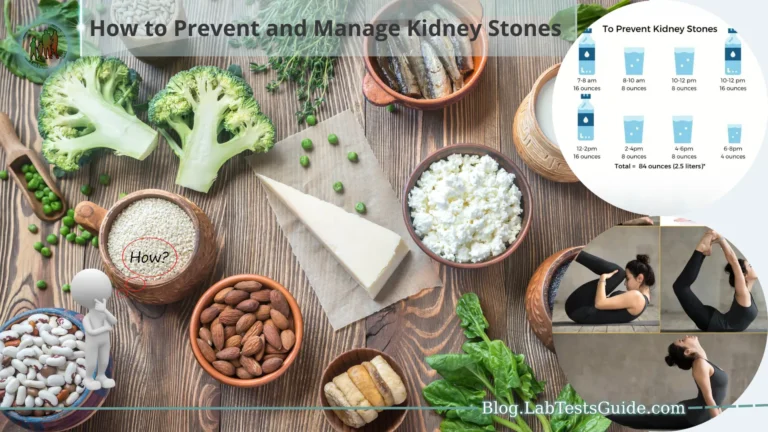Hormonal balance plays a crucial role in women’s overall health and well-being, and one significant aspect of this equilibrium involves the androgen hormones. Androgens, typically considered male hormones, are also present in females and play vital roles in various physiological processes. When these hormones become imbalanced in women, it can lead to a range of health issues and affect their quality of life. Understanding how to balance androgen hormones in women is essential to address concerns such as acne, irregular menstrual cycles, excess hair growth, and fertility challenges.

This comprehensive guide aims to provide valuable insights and practical strategies for restoring and maintaining hormonal balance in women. From discussing the symptoms and causes of androgen hormone imbalances to exploring lifestyle changes, herbal remedies, and prescription therapies, this resource covers a wide array of approaches to address hormonal issues. Whether you’re seeking to manage PCOS, enhance fertility, or alleviate hormonal acne, the information presented here is designed to empower women to take charge of their hormonal health and achieve a better quality of life. However, it’s important to remember that individual cases may vary, and consulting with qualified healthcare professionals is crucial before implementing any significant changes to hormone management.
What Is Androgen Hormone Imbalance in Women?
Here are some key points to understand what androgen hormone imbalance entails in women.
- Presence of Androgens in Women: Androgens, including testosterone and DHEA (Dehydroepiandrosterone), are naturally produced in small amounts in women’s ovaries and adrenal glands. While these hormones are essential for certain functions, excessive levels can cause imbalances.
- Hormonal Imbalance Symptoms: High androgen levels in women can lead to symptoms such as acne, excessive facial and body hair growth (hirsutism), male pattern hair loss (androgenic alopecia), irregular menstrual cycles, and mood swings.
- Polycystic Ovary Syndrome (PCOS): PCOS is a common hormonal disorder that often involves androgen hormone imbalance. It is characterized by enlarged ovaries with multiple small cysts and is associated with irregular periods, fertility challenges, and other hormonal disturbances.
- Hormone Testing and Diagnosis: Blood tests are used to measure hormone levels, helping to diagnose androgen hormone imbalance and identify potential underlying causes.
- Contributing Factors: Androgen hormone imbalance can be influenced by various factors, including genetics, insulin resistance, obesity, stress, and certain medical conditions.
- Impact on Fertility: Hormonal imbalances can affect ovulation and interfere with fertility, making it challenging for some women to conceive.
- Management and Treatment: The approach to managing androgen hormone imbalance varies depending on the underlying cause and individual circumstances. Lifestyle changes, dietary modifications, and medications like hormonal birth control or anti-androgen drugs may be prescribed.
- Skincare Considerations: Hormonal imbalances can contribute to acne in women, and skincare routines tailored to manage hormonal acne can be beneficial.
- Seeking Professional Help: Women experiencing symptoms of hormonal imbalance should consult with healthcare professionals, such as endocrinologists or gynecologists, to receive accurate diagnosis and personalized treatment plans.
- Importance of Individualized Approach: Each woman’s hormonal balance is unique, and treatment should be tailored to suit their specific needs and medical history.
How to Balance Androgen Hormones in Women?
Here are some strategies to help restore hormonal balance.
- Healthy Diet: Focus on a balanced diet rich in whole foods, vegetables, fruits, lean proteins, and healthy fats. Reduce the intake of refined sugars, processed foods, and excessive carbohydrates, as they can contribute to insulin resistance and hormonal imbalances.
- Regular Exercise: Engage in regular physical activity, such as aerobic exercises, strength training, or yoga. Exercise can help regulate hormone levels, reduce stress, and improve insulin sensitivity.
- Stress Management: Chronic stress can disrupt hormonal balance. Incorporate stress-reducing practices into your daily routine, such as meditation, deep breathing exercises, mindfulness, or hobbies that bring joy and relaxation.
- Weight Management: If overweight or obese, achieving and maintaining a healthy weight can improve hormonal balance, especially in conditions like PCOS.
- Herbal Supplements: Some herbal supplements, such as saw palmetto, spearmint tea, and chasteberry (vitex), have shown potential in reducing androgen levels in women. However, consult with a healthcare professional before using any supplements.
- Prescription Medications: In cases of severe androgen hormone imbalances, doctors may prescribe anti-androgen medications to reduce androgen production or hormonal birth control pills to regulate the menstrual cycle.
- Skincare Routine: For women experiencing hormonal acne, a proper skincare routine can help manage breakouts. Use non-comedogenic products and consider topical treatments prescribed by a dermatologist.
- Regular Medical Check-ups: Get regular check-ups and hormone testing to monitor hormone levels and track progress in hormonal management.
- Address Underlying Conditions: If androgen hormone imbalance is caused by an underlying condition like PCOS or adrenal disorders, work with healthcare professionals to address and manage the primary issue.
- Support and Education: Seek support from healthcare professionals, support groups, or educational resources to better understand your hormonal condition and treatment options.
Symptoms and Causes of Androgen Hormone Imbalance:
- Acne: Increased androgen levels can stimulate sebum production in the skin, leading to the development of acne, especially around the jawline, chin, and upper neck.
- Hirsutism: Excess androgens may cause excessive hair growth on the face, chest, abdomen, back, or other areas where men typically grow hair.
- Male Pattern Hair Loss: Women with elevated androgen levels may experience hair thinning and hair loss patterns similar to male pattern baldness.
- Irregular Menstrual Cycles: Hormonal imbalances can disrupt the menstrual cycle, leading to irregular periods, heavy bleeding, or missed periods.
- Ovulation Issues: High androgen levels can interfere with ovulation, affecting fertility and making it challenging for some women to conceive.
- Weight Gain: Androgen imbalances may contribute to weight gain, particularly around the abdomen.
- Mood Changes: Fluctuations in hormones can lead to mood swings, irritability, and emotional sensitivity.
- Fatigue: Hormonal imbalances might cause fatigue and decreased energy levels.
- Skin Discoloration: Some women with androgen hormone imbalances may experience skin discoloration, particularly in areas like the neck, armpits, and groin (acanthosis nigricans).
Causes of Androgen Hormone Imbalance in Women:
- Polycystic Ovary Syndrome (PCOS): PCOS is one of the most common causes of androgen hormone imbalance in women. It is a hormonal disorder characterized by enlarged ovaries with multiple small cysts and elevated androgen levels.
- Adrenal Disorders: Conditions affecting the adrenal glands, such as congenital adrenal hyperplasia (CAH) or Cushing’s syndrome, can lead to excessive androgen production.
- Insulin Resistance: Insulin resistance, often associated with obesity and metabolic syndrome, can trigger the overproduction of androgens.
- Stress: Chronic stress can disrupt the delicate balance of hormones, including androgens, leading to imbalances in the endocrine system.
- Age and Menopause: Hormonal changes associated with aging and menopause can also impact androgen levels in women.
- Medications: Some medications, such as anabolic steroids or certain anticonvulsants, may affect hormone levels and contribute to imbalances.
- Genetics: Genetic factors can play a role in predisposing some women to androgen hormone imbalances.
- Tumors: Rarely, tumors in the ovaries or adrenal glands can produce excess androgens.
- Environmental Factors: Exposure to certain environmental pollutants or endocrine-disrupting chemicals may influence hormone levels.
Medical Evaluation and Diagnosis:
- Medical History: The first step in the evaluation process is taking a detailed medical history, including any symptoms experienced, menstrual patterns, family history of hormonal disorders, and any medications or supplements being taken.
- Physical Examination: A thorough physical examination may be conducted, focusing on signs such as acne, hirsutism, hair loss, and skin discoloration, which can indicate hormonal imbalances.
- Hormone Testing: Blood tests are crucial in diagnosing androgen hormone imbalance. The following hormone levels may be measured:
- Testosterone: Total and free testosterone levels are assessed. Elevated levels can indicate androgen excess.
- DHEA-S: Dehydroepiandrosterone sulfate (DHEA-S) is another androgen hormone that is tested.
- Luteinizing Hormone (LH) and Follicle-Stimulating Hormone (FSH): Ratios of these hormones can help identify PCOS.
- Progesterone: Measuring progesterone can help determine if ovulation is occurring regularly.
- Pelvic Ultrasound: In cases of suspected PCOS or other ovarian conditions, a pelvic ultrasound may be performed to examine the ovaries for cysts or structural abnormalities.
- Glucose and Insulin Levels: Since insulin resistance can contribute to androgen hormone imbalances, blood glucose and insulin levels may be checked.
- Thyroid Function Tests: Thyroid hormones play a role in hormonal regulation, so thyroid function tests may be conducted to rule out thyroid disorders.
- Imaging and Tumor Evaluation: If a tumor or adrenal gland disorder is suspected, imaging studies like MRI or CT scans may be recommended.
- Exclusion of Other Conditions: It is essential to rule out other potential causes of hormonal imbalances, such as thyroid disorders, adrenal gland disorders, or pituitary gland disorders.
- Menstrual Charting: Keeping track of menstrual cycles and any irregularities can help in the diagnostic process.
Lifestyle Changes for Hormonal Balance:
Here are some essential lifestyle modifications that can help restore hormonal equilibrium.
- Balanced Diet: Adopt a well-rounded and nutritious diet that includes a variety of whole foods, such as fruits, vegetables, whole grains, lean proteins, and healthy fats. Avoid excessive consumption of processed foods, sugary snacks, and refined carbohydrates, as they can contribute to hormonal fluctuations.
- Regular Exercise: Engage in regular physical activity, as exercise can help regulate hormones, reduce stress, and improve overall well-being. Aim for a mix of aerobic exercises, strength training, and flexibility exercises.
- Stress Management: Chronic stress can disrupt hormonal balance. Practice stress-reducing techniques such as meditation, deep breathing exercises, yoga, or spending time in nature.
- Adequate Sleep: Prioritize getting enough restful sleep each night. Lack of sleep can negatively impact hormone levels and overall health.
- Weight Management: If overweight or obese, strive to achieve a healthy weight through a balanced diet and regular exercise. Weight loss can improve hormonal imbalances, especially in conditions like PCOS.
- Limit Alcohol and Caffeine: Excessive alcohol and caffeine intake can affect hormone levels. Moderation is key to maintaining hormonal balance.
- Avoid Smoking and Recreational Drugs: Smoking and certain recreational drugs can interfere with hormonal function and exacerbate hormonal imbalances.
- Hormone-Disrupting Chemicals: Limit exposure to hormone-disrupting chemicals found in certain plastics, pesticides, and household products. Opt for natural, chemical-free alternatives whenever possible.
- Supportive Supplements: Certain supplements, such as omega-3 fatty acids, magnesium, and vitamin D, may support hormone balance. Consult with a healthcare professional before starting any new supplements.
- Mindful Eating: Practice mindful eating to develop a healthy relationship with food and avoid emotional or stress-induced eating habits.
Herbal Remedies and Supplements:
Here are some herbal remedies and supplements that have been studied for their potential to promote hormonal balance.
- Chasteberry (Vitex agnus-castus): Chasteberry is a popular herbal remedy for balancing hormones, particularly in cases of menstrual irregularities and premenstrual syndrome (PMS). It may help regulate the menstrual cycle and reduce symptoms like breast tenderness and mood swings.
- Saw Palmetto: Saw palmetto is often used to address hormonal imbalances related to conditions like PCOS. It is believed to have anti-androgenic properties and may help reduce excessive hair growth and acne caused by elevated androgens.
- Spearmint Tea: Spearmint tea has shown potential in reducing androgen levels in women with PCOS. Regular consumption may help manage symptoms like hirsutism and acne.
- Black Cohosh: Black cohosh is sometimes used to alleviate menopausal symptoms, such as hot flashes and night sweats, by influencing hormone levels.
- Maca Root: Maca root is believed to support hormone balance and improve fertility. It is commonly used to address hormonal issues in women and men alike.
- Ashwagandha: Ashwagandha is an adaptogenic herb known for its stress-reducing properties. It may help regulate cortisol levels, which can indirectly impact other hormone levels.
- Evening Primrose Oil: Evening primrose oil contains gamma-linolenic acid (GLA), which may help with hormone-related skin conditions, such as acne.
- Dong Quai: Dong quai is often used in traditional Chinese medicine for women’s health concerns, including menstrual irregularities and menopausal symptoms.
- Rhodiola Rosea: Rhodiola is an adaptogenic herb that can help reduce stress and support overall hormonal balance.
- Turmeric: Turmeric has anti-inflammatory properties and may help with hormone-related inflammation and conditions like PCOS.
Prescription Medications and Hormonal Therapies:
Here are some common prescription medications and hormonal therapies used for hormonal balance.
- Combined Oral Contraceptives: Hormonal birth control pills contain estrogen and progestin, which work together to regulate the menstrual cycle, reduce androgen production, and manage symptoms like acne and hirsutism. They can be particularly beneficial for women with PCOS.
- Progestin-Only Pills (Mini Pills): Progestin-only pills can be used for women who are sensitive to estrogen or cannot take combined oral contraceptives. They also help regulate the menstrual cycle and control hormone-related symptoms.
- Anti-Androgen Medications: These medications directly block the effects of androgens in the body, helping to reduce excessive hair growth and acne caused by elevated androgens. Spironolactone is a common anti-androgen medication used for this purpose.
- Metformin: Although primarily used to manage type 2 diabetes, metformin is sometimes prescribed off-label for women with PCOS to improve insulin sensitivity and regulate hormone levels.
- Gonadotropins: In cases of fertility issues related to hormonal imbalances, gonadotropin medications may be used to stimulate ovulation and increase chances of conception.
- Hormone Replacement Therapy (HRT): Hormone replacement therapy may be recommended for menopausal women to replace declining estrogen and progesterone levels, helping to alleviate menopausal symptoms.
- GnRH Agonists: Gonadotropin-releasing hormone (GnRH) agonists can be used to suppress ovarian function, temporarily reducing androgen levels in certain conditions.
- Corticosteroids: In cases of adrenal gland disorders, corticosteroids may be prescribed to manage excessive androgen production.
- Oral Retinoids: Oral retinoids are used to treat severe acne caused by hormonal imbalances, but they require careful monitoring due to potential side effects.
- Hormonal Intrauterine Devices (IUDs): Some hormonal IUDs release progestin locally, providing contraceptive benefits and potentially helping with menstrual regulation and symptom management.
Hormonal Balance and Fertility:
Here’s how hormonal balance is connected to fertility.
- Ovulation: Hormonal balance is crucial for the release of mature eggs from the ovaries during ovulation. Hormones like luteinizing hormone (LH) and follicle-stimulating hormone (FSH) play a key role in this process. If hormone levels are disrupted, ovulation may be irregular or absent, making it challenging to conceive.
- Menstrual Cycle Regularity: Hormonal imbalances can lead to irregular menstrual cycles, with varying lengths or skipped periods. A regular menstrual cycle is indicative of healthy hormonal function and a higher likelihood of conception.
- Progesterone Production: After ovulation, the corpus luteum (a structure formed from the ovulated follicle) produces progesterone. Progesterone prepares the uterine lining for implantation and sustains early pregnancy. Inadequate progesterone levels can lead to difficulties in implantation and early miscarriage.
- PCOS and Fertility: Polycystic ovary syndrome (PCOS) is a common hormonal disorder that affects fertility. Women with PCOS often have high androgen levels, insulin resistance, and irregular ovulation, making it harder to conceive naturally.
- Thyroid Function: Proper thyroid hormone levels are essential for fertility. Thyroid disorders, such as hypothyroidism or hyperthyroidism, can disrupt ovulation and menstrual cycles.
- Prolactin Levels: Elevated levels of prolactin, the hormone responsible for milk production, can suppress ovulation and interfere with fertility.
- Hormonal Implantation Support: Balanced hormone levels create an optimal environment for the fertilized egg to implant and develop into a healthy pregnancy.
- Male Hormones in Women: While androgen hormones (like testosterone) are primarily considered male hormones, they are also present in women in smaller amounts. An imbalance in male hormones in women can contribute to fertility challenges.
- Stress and Cortisol: Chronic stress can disrupt the delicate hormonal balance and affect fertility. High cortisol levels, the stress hormone, may interfere with ovulation and menstrual regularity.
- Hormonal Treatment for Fertility: In cases where hormonal imbalances are identified as the cause of fertility issues, hormonal treatments, such as fertility drugs or assisted reproductive technologies (ART), may be used to help regulate hormones and support conception.
Case Studies and Success Stories:
Here are a few hypothetical case studies and success stories.
- Managing PCOS with Lifestyle Changes: Emma, a 29-year-old woman, was diagnosed with polycystic ovary syndrome (PCOS) after experiencing irregular periods, hirsutism, and weight gain. Frustrated with her symptoms, she decided to take charge of her health. Emma consulted with a healthcare professional who recommended lifestyle changes, including a balanced diet and regular exercise. She incorporated more fruits, vegetables, and whole grains into her meals, reduced sugar and processed foods, and started a workout routine that included both cardio and strength training. Over time, Emma noticed improvements in her menstrual cycle regularity, reduced hirsutism, and gradual weight loss. Her commitment to these lifestyle changes not only helped manage her PCOS symptoms but also improved her overall well-being.
- Overcoming Hormonal Acne: Laura, a 25-year-old woman, struggled with persistent hormonal acne for years. Frustrated with various treatments that didn’t yield lasting results, she sought help from a dermatologist who recommended a combination approach. The dermatologist prescribed a topical retinoid to control acne, along with an oral contraceptive pill to regulate hormonal fluctuations. Additionally, the dermatologist advised Laura on skincare practices to manage her acne-prone skin effectively. Over several months, Laura noticed a significant reduction in acne breakouts and an improvement in her skin texture. The combination of medical treatment and a consistent skincare routine helped Laura gain her confidence back and achieve clearer, healthier skin.
- Finding Fertility Success: Sarah and Mike, a couple in their early thirties, had been trying to conceive for over a year without success. They sought assistance from a fertility specialist who conducted a thorough evaluation. Sarah was diagnosed with ovulation issues related to hormonal imbalances. The fertility specialist prescribed medication to stimulate ovulation and closely monitored Sarah’s menstrual cycles. After a few cycles, Sarah conceived, and the couple was overjoyed to welcome their healthy baby boy. The successful treatment not only fulfilled their dream of becoming parents but also deepened their appreciation for the significance of hormonal balance in fertility.
FAQs:
What are androgen hormones, and how do they affect women’s health?
Androgen hormones are typically considered male hormones, but they are also present in smaller amounts in women. They play essential roles in women’s health, affecting aspects such as fertility, menstrual cycles, skin health, and mood. However, when androgen levels become imbalanced, it can lead to issues like acne, hirsutism (excessive hair growth), irregular menstrual cycles, and fertility challenges.
What are the common symptoms of androgen hormone imbalance in women?
Common symptoms of androgen hormone imbalance in women include acne, hirsutism (excessive hair growth), male pattern hair loss, irregular menstrual cycles, weight gain, mood swings, and fatigue.
Can lifestyle changes help balance androgen hormones in women?
Yes, lifestyle changes can play a significant role in balancing androgen hormones. Adopting a balanced diet, engaging in regular exercise, managing stress, and maintaining a healthy weight can all contribute to hormonal balance.
Are there any herbal remedies or supplements that can help balance androgen hormones?
Yes, some herbal remedies and supplements, such as chasteberry, saw palmetto, and spearmint tea, have shown potential in supporting hormonal balance. However, it’s crucial to consult with a healthcare professional before using any supplements, especially if you have pre-existing medical conditions or are taking medications.
What are the prescription medications and hormonal therapies used to manage androgen hormone imbalances?
Prescription medications and hormonal therapies commonly used include hormonal birth control pills (combined oral contraceptives), anti-androgen medications (e.g., spironolactone), metformin, and fertility drugs in cases of ovulation issues.
How does hormonal balance impact fertility in women?
Hormonal balance is crucial for fertility in women. Proper functioning of reproductive hormones is necessary for regular ovulation, healthy menstrual cycles, and successful conception. Imbalances in hormones can lead to irregular ovulation, menstrual irregularities, and difficulties in getting pregnant.
What should women do if they suspect they have an androgen hormone imbalance or are experiencing related symptoms?
If women suspect they have an androgen hormone imbalance or experience symptoms like acne, hirsutism, irregular menstrual cycles, or fertility issues, they should consult with a healthcare professional. A qualified healthcare provider can conduct a thorough evaluation, perform hormone testing, and recommend appropriate treatment options tailored to individual needs.
Is hormonal balance the same for every woman?
No, hormonal balance is unique to each woman. Hormone levels can vary based on age, genetics, lifestyle, and underlying medical conditions. Consequently, treatment plans for hormonal balance should be personalized to address individual circumstances.
Can hormonal imbalances be completely cured?
The extent of hormonal balance restoration depends on the underlying cause and individual factors. In some cases, hormonal imbalances can be effectively managed and symptoms reduced or eliminated with appropriate treatments and lifestyle changes.
Can natural remedies be used alongside prescription medications for hormonal balance?
Yes, natural remedies, such as lifestyle changes and herbal supplements, can complement prescription medications for hormonal balance. However, it’s essential to inform healthcare professionals about any supplements being taken to avoid potential interactions or contraindications.
Conclusion:
In conclusion, achieving hormonal balance is essential for the overall health and well-being of women, as imbalances in androgen hormones can lead to a range of troublesome symptoms and impact fertility. Through a combination of lifestyle changes, such as adopting a balanced diet, engaging in regular exercise, managing stress, and getting adequate sleep, women can take proactive steps to support their hormonal health. Additionally, herbal remedies and supplements can offer complementary support, but it’s crucial to consult with healthcare professionals before using them. In cases of significant hormonal imbalances, prescription medications and hormonal therapies, prescribed and monitored by qualified healthcare providers, can be effective in restoring hormonal equilibrium and alleviating associated symptoms. By understanding the importance of hormonal balance and seeking appropriate guidance, women can take control of their health and embrace a path toward improved hormonal well-being.






